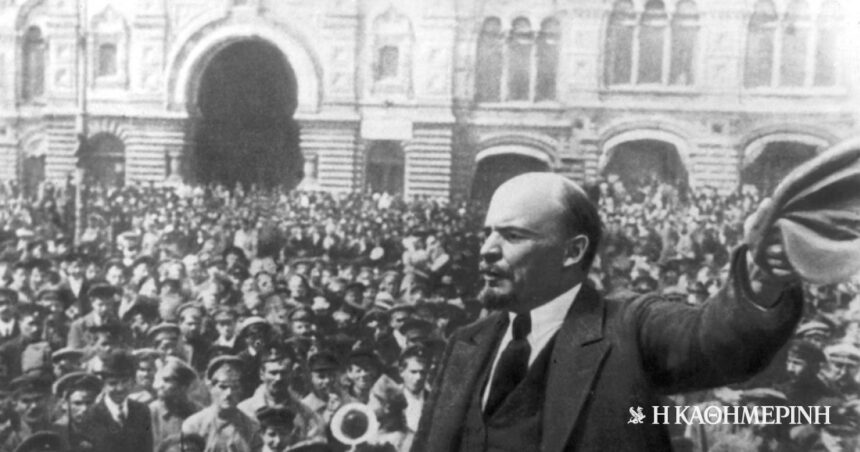Undoubtedly one of the personalities who left an indelible mark on the history of the 20th century is Vladimir Ilyich Ulyanov “Lenin”. Lenin was born in April 1870 in Sibirsk, Imperial Russia. His father Ilya Nikolaevich Ulyanov had a humble origin from freed serfs. Having studied Mathematics at the University of Kazan, he rose through the ranks to become the school inspector of Sibirsk province. Lenin’s mother, Maria Alexandrovna Blank, on the other hand, was descended from Baltic Lutheran Germans on the one hand, and Christianized Ukrainian Jews on the other. Exuding ideas of the liberalism of their time, Lenin’s parents gave their six children – three girls and three boys – equal opportunities in education.
They believed that by educating their children, they were giving them more resources for their future, hoping that they would contribute to their social progress. Lenin thus grew up in a warm family environment, having the freedom to express his ideas and talents. He was an excellent student at school and played chess in his spare time. First the death of his father in 1886 and then the execution of his brother as a terrorist shocked the teenage Vladimir, whose character changed dramatically. Shortly after starting his studies at Kazan University, he was expelled for trying to lead fellow students into protest. In later years he associated with Russian radicals, coming into contact with the writings of Marx and Engels.
Being a restless spirit, he did not stand still by merely studying the works of the great Marxists and socialists of his time, but he also contributed to the formation of a revolutionary ideology in Russia. While abroad (Geneva, Munich, London), he participated in the publication of the Iskra (Spark) newspaper, which enjoyed wide circulation among workers and Lenin’s like-minded people in Russia. At the Second Congress of the Russian Social-Democratic Labor Party, which began in Brussels and ended in London in the summer of 1903, Lenin put himself in charge of the Bolshevik wing, proposing a tougher line in recruiting new members to the party. His hope was to develop a core of professional revolutionaries who would devote most of their time to the service of the party, with the aim of bringing about a revolution of the proletariat against the autocracy of the Russian tsars.
In April 1917, after the February Revolution of the same year in Russia, Lenin traveled by train to Petersburg. In October/November of the same year, he led the Bolshevik initiative to overthrow the Provisional Government of Alexander Kerensky and then assumed the duties of chairman of the Congress of People’s Commissars. After withdrawing Russia from World War I by signing the Treaty of Brest-Litovsk (March 3, 1918), Lenin focused on establishing a communist regime in his country. In February 1921 he announced the New Economic Policy, according to which a market economy was allowed to a certain extent.
Lenin’s health had been steadily deteriorating since 1918. He never fully recovered from the wounds he received in the August 1918 assassination attempt. In mid-1921 he became seriously ill and had to be taken to the countryside to recuperate. In March 1923 he suffered his third consecutive stroke, which left him partially paralyzed. In October of the same year, he went to Moscow for the last time. A few months later, on January 21, 1924, he breathed his last.
Column Editor: Myrto Katsigera, Vassilis Minakakis, Antigoni-Despina Poimenidou, Athanasios Syroplakis




